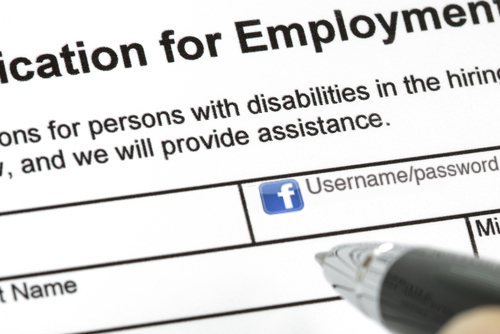We’re living in extraordinary times. The digital revolution is fundamentally impacting every aspect of our lives. The pace of change is happening at breath taking speed, and I find myself fascinated by the evolution of change. I think we’re all become somewhat blasé regarding innovation, and it’s not surprising given that “wow” factors are happening with greater frequency. One thing we take for granted is our smart phone. Mobile phones have been around for a while, but our dependency on the device grows daily. I came across a survey that indicated that 96 per cent of mobile phone owners have their device within arm’s reach, twenty four hours a day. That folks is attachment or addiction if you will.
 As for the handle, the smartphone, not sure if it’s made me any smarter. In some ways it’s made me intellectually lazy. There was a time when the grey matter between my ears was my Rolodex. I had a multitude of phone numbers memorized because I had too. Today, I would be hard pressed to come up with more than two numbers. Why? I don’t have to memorize phone numbers. I push a button and magic happens, the number appears. If the number doesn’t appear? I ask Siri to find it. If you own an iPhone you know who/what Siri is. Siri does a lot of thinking for all of us. Need a phone number, directions, restaurant name, the weather, the score in the Jay’s game, you name it, she knows it all. When some other entity does a lot of the thinking for you, well, you stop doing it. I’m not sure if that’s such a good thing. I think from now on I’m going to stop referring to it as a smart phone, and start calling it something more appropriate, like the “dumbass phone”.
As for the handle, the smartphone, not sure if it’s made me any smarter. In some ways it’s made me intellectually lazy. There was a time when the grey matter between my ears was my Rolodex. I had a multitude of phone numbers memorized because I had too. Today, I would be hard pressed to come up with more than two numbers. Why? I don’t have to memorize phone numbers. I push a button and magic happens, the number appears. If the number doesn’t appear? I ask Siri to find it. If you own an iPhone you know who/what Siri is. Siri does a lot of thinking for all of us. Need a phone number, directions, restaurant name, the weather, the score in the Jay’s game, you name it, she knows it all. When some other entity does a lot of the thinking for you, well, you stop doing it. I’m not sure if that’s such a good thing. I think from now on I’m going to stop referring to it as a smart phone, and start calling it something more appropriate, like the “dumbass phone”.
My reason for thinking about smartphones, and our growing dependency on them, was a result of reading an article about Google developing a self-driving car. The prototype is a two seater, no steering wheel, gas pedal or brakes. It’s all powered by computers and is guided by sensors. The possibilities are mind boggling. If Google makes the self-driving car a reality it will have a ripple effect that would make Charles Richter, creator of the Richter scale, say “that’s what I’m talking about”. Automakers, the oil industry, regulators, oh hell, most every business would be impacted. Some cars today have functions that are automated, but not fully automated. A fully automated self-driving car would be game changer, for all of us. Now, you may think this is too futuristic and is nothing more than a bunch of techno geeks creating cools things that will never get off the ground. That’s what I thought. Mind you that was six years ago when I read an article that we would become dependent on our mobile phones, and that they would eventually replace our personal computers.
Until next time,
Cheers.
Read More Add a CommentNot sure if you heard but Facebook celebrated its 10th anniversary this week. In digital terms that’s a lifetime. Maybe it’s the speed at which things change these days that makes me take the “let’s see where they are next year” approach when it comes to the social media world. There’s no denying the influence and success that Facebook has had, and their success means they have a target on their back. To date no one has figured out a way to dethrone the king, but it’s not from a lack of trying.
 So who’s gunning for Facebook? The creators of mobile messaging apps. If you just caught yourself thinking, “great…just what the world needed…more social media” you’re not alone. But for those of you who tend to view social media platforms as fads, well, I encourage you read on and have a look at these stat’s. Mobile messaging apps are the newer players on the scene, and they have some legs.
So who’s gunning for Facebook? The creators of mobile messaging apps. If you just caught yourself thinking, “great…just what the world needed…more social media” you’re not alone. But for those of you who tend to view social media platforms as fads, well, I encourage you read on and have a look at these stat’s. Mobile messaging apps are the newer players on the scene, and they have some legs.
LINE is a mobile messaging app whose registered users went from 80 million to 300 million users in just twelve months. Wanna raise the other eyebrow? WhatsApp’s monthly active users grew from 350 million users in October of 2013 to 400 million users by December 2013. A 50 million bump in active users in a two month period makes for a happy board meeting at WhatsApp. Active user levels are exploding in Asia, Southeast Asia and Europe. Are mobile messaging apps going to make their way to our shores? Well, there’s some evidence they’re already here.
Data today suggests that Facebook may have thwarted the latest attempt to supplant the giant. That being said I’m not sure if the folks at Twitter are feeling as comfy as Facebook. There’s no doubt Twitter has enjoyed tremendous commercial success but it looks like there might be some dark clouds on the horizon. Timeline views is everything for Twitter. That’s THE measurement for them, and the recent plunge in their timeline views has surprised many. In the US views went from 43 billion to 41 billion in the last two quarters of 2013. The same trend held for international users. Timeline views went from 116 billion to 107 billion.
Look, I get it. There’s no reason to dust off the trumpet and start playing taps. Maybe there’s a perfectly plausible explanation. All it would take for a few extra billion timeline views is for Lindsay Lohan and Paris Hilton to go on a drunken binge. But Twitter can’t depend on them so what’s causing the decline? Maybe it’s the malicious and nasty use of Twitter. Clearly unintended by the creators of Twitter, but nevertheless a problem for them. Of all the social media tools out there it’s the one I stay away from the most. I have a twitter account, and apparently I have followers. But I don’t tweet regularly because I really don’t think anyone cares what I had for breakfast. And I really don’t want to attract anonymous haters because I had regular coffee versus decaf.
There’s no denying Twitter’s tremendous success and social relevance. See the Arab Spring. But meteoric growth can only be sustained for so long. The next new thing is always just around the corner. Now might be a good time to review your social media strategy and try to figure out where you need be. Your customers might already be there.
Until next time
Cheers
Read More Add a CommentWho doesn’t like swag? Everyone likes a goodie bag full of free stuff. Personally? I won’t jump up and down like a moron to get a free t-shirt at a sporting event but if it happens to land in my lap I’m taking it. It might come in handy when I wash the car. No wait, I haven’t physically washed my car in years. Okay, I’m not sure what I’ll use it for but it’s going home with me because it’s free and now it’s mine. But what happens when you get used to getting something for free and then all of a sudden you’re asked to pay for it? That’s exactly what’s happening to the newspaper industry in Canada.
 For years now I’ve been reading newspapers online. There was a time not too long ago when I would get up every Saturday and Sunday morning, head down to local café for a latte and pick up two newspapers. I head back home, crawl back into bed and read both papers while sipping on my overpriced cup of java. Then once a month I would take the stack of newspapers that had piled up out for recycling; same routine for years, winter, spring, summer and fall. Then one day it all changed, it was day I got my first iPad. Without realizing it I stopped going out for latte’s and newspapers. A cappuccino maker made its way into our home, and at my fingertips was all this information, newspapers from around the world. The experience is so much better and it’s free. It’s so easy; I no longer wait for weekends to get my fix of free news. On the train, in the car (not while driving), while watching TV or any other conceivable moment of free time. You’re hooked, and then one day when you visit one of your favorite newspapers sites a message appears, “You have now read five of twenty free articles…Click here to subscribe”. What the hell? They want money? That’s preposterous!
For years now I’ve been reading newspapers online. There was a time not too long ago when I would get up every Saturday and Sunday morning, head down to local café for a latte and pick up two newspapers. I head back home, crawl back into bed and read both papers while sipping on my overpriced cup of java. Then once a month I would take the stack of newspapers that had piled up out for recycling; same routine for years, winter, spring, summer and fall. Then one day it all changed, it was day I got my first iPad. Without realizing it I stopped going out for latte’s and newspapers. A cappuccino maker made its way into our home, and at my fingertips was all this information, newspapers from around the world. The experience is so much better and it’s free. It’s so easy; I no longer wait for weekends to get my fix of free news. On the train, in the car (not while driving), while watching TV or any other conceivable moment of free time. You’re hooked, and then one day when you visit one of your favorite newspapers sites a message appears, “You have now read five of twenty free articles…Click here to subscribe”. What the hell? They want money? That’s preposterous!
Of course it’s not preposterous. No one works for free and one has an expectation that efforts should be rewarded. Why would it be any different for the newspaper industry? The digital age has had profound impact on the newspaper industry. Advertising dollars are shrinking, which means that less people are subscribing to newspapers. How does the newspaper industry survive? What do they do? Is it simply transferring the words from paper to print and saying we want to earn the same revenues? I’m not sure. Recently a number of newspapers in Canada have introduced an online subscription fee. Will it work? I haven’t received the message on my screen from The Globe, Financial Post or Toronto Sun that says, “Sorry Bozic, the free ride is over”. But when I do, what will I do? I remember a while ago I tried to read the New York Times and Post online. They wanted money, so I moved on. I just went back to their sites, after being warned by Canadian newspapers that free wasn’t doable anymore, and much to my surprise they weren’t asking for money anymore. Did it not work for them? Did less eyeballs result in less online advertising? Don’t know and I didn’t give it a lot of thought. Maybe I should but I’m a byproduct of the new digital reality. I have different expectations today, especially when it comes to information. Most people get their news today from non-traditional news outlets, and maybe it’s hurting some industries, but it’s a fact. If a few publications shut me out because I’m not paying, there are millions of other sources that I can access simply because I want too. I can’t even imagine what it’s like to try to compete in that world.
In no shape or form am I saying that newspapers are wrong for attempting to earn revenue for their on-line efforts. A strong and vibrant press is an important staple of our society. Good journalism keeps institutions and individuals honest. Maybe I should pay the subscription fee to ensure that fifth estate remains viable. My subscription can make a small contribution in that regard. It is one thing to rationalize it and altogether different when your wallet sets your course. I can’t help but wonder if the fate of the newspaper industry will be no different than our local hardware store. Remember them? That’s right…they’re no more.
Until next time,
Cheers.
Read More Add a Comment A common phrase we all use today is, “Google it”. I used that phrase to myself at 3:30am this morning, I’ll get to that in a moment. But it really is amazing how we have all come to depend on this technology. So much so, it makes you wonder how we ever managed without it. Information at your fingertips, and it’s something we almost take for granted today. The reality is Google hasn’t been around for that long. It was launched in 1996, by a couple of PhD students at Stanford University. What these two visionaries wanted to create was a universal digital library, and what a library it is! One of the benefits of this universal digital library is that no one ever says, “shhh”.
A common phrase we all use today is, “Google it”. I used that phrase to myself at 3:30am this morning, I’ll get to that in a moment. But it really is amazing how we have all come to depend on this technology. So much so, it makes you wonder how we ever managed without it. Information at your fingertips, and it’s something we almost take for granted today. The reality is Google hasn’t been around for that long. It was launched in 1996, by a couple of PhD students at Stanford University. What these two visionaries wanted to create was a universal digital library, and what a library it is! One of the benefits of this universal digital library is that no one ever says, “shhh”.
Here’s my latest experience with Google. It’s 12:30am, I’m dead asleep only to hear, “get up…I just heard the garage door open”. I clear the cobwebs, ask for the message to be repeated because maybe I was just dreaming and I can go back to sleep, but no! The first thing I do is reach for my sand wedge, which is strategically placed close to my side of the bed, and off I go to possibly encounter an intruder, all the while hoping it’s some skinny little runt who’s ass I’ll be kicking without much fuss. As I’m walking down the stairs, turning on all the lights, you do that mental checklist. Alarm didn’t go off; protect Kathy and Mack; check all the rooms and think that it really has been a good life. Every room is empty, but now I have to check the basement like all the stupid people do in movies. The coast was clear, I checked the garage out and everything looked normal. I hit the remote for the garage door and it closes just like it supposed too. This is where I convince myself that it was a one-off because I want to get some sleep. Good luck falling back asleep. I’m up for an another hour just to be sure. Just as I’m about to nod off, there it goes again. Round two, the exact routine, including the wishful thinking that it’s but a mere coincidence. Well, when the garage door opened by itself again at 3:30am, I made a decision to do something about it. I grabbed my iPad and Googled, “why do garage doors open by themselves”? There the answer appeared, one possible solution was to erase the existing code and enter a new one. Downstairs I went to reset the codes, a how-to video demonstration courtesy of YouTube, and lo and behold the damn door stopped opening by itself.
Google saved me X dollars because without it I would have called a garage door repair company to do exactly what I did. I know that Google tracks every search we make and that information is for sale. But when you need an answer, like right now, you don’t dwell on privacy issues or if Google’s practice to monitor our information gathering behaviour is ethically just. Besides, I didn’t have any other option because my library card expired, in 1978.
Until next time,
Cheers.
Read More Add a CommentIndustries have invested untold billions of dollars to ensure privacy protection, and yet employer can say, “never mind your privacy, give me your Facebook password”.
 No one is shocked today about the growth and acceptance of social media. Even a novice has a basic understanding of Facebook, Twitter, YouTube etc. Social media vehicles are everywhere, especially in the work place. If you’re bored right now do a walk-about in your office and you’ll see for yourself. There’s a good chance that one of your direct reports or co-workers are “liking” something on Facebook or Tweeting. Social media websites are now a part of the workplace DNA. How much productivity is lost because of social media? That’s a topic for another blog, as well as how do you monetize your social media efforts. This blog is about privacy, and the rights of an employer and employee.
No one is shocked today about the growth and acceptance of social media. Even a novice has a basic understanding of Facebook, Twitter, YouTube etc. Social media vehicles are everywhere, especially in the work place. If you’re bored right now do a walk-about in your office and you’ll see for yourself. There’s a good chance that one of your direct reports or co-workers are “liking” something on Facebook or Tweeting. Social media websites are now a part of the workplace DNA. How much productivity is lost because of social media? That’s a topic for another blog, as well as how do you monetize your social media efforts. This blog is about privacy, and the rights of an employer and employee.
Did you know that an employer has the right to ask for your Facebook password? Go ahead, pick up your jaw…I’ll wait. Now that you’ve recovered you might be saying to yourself, “Maybe I shouldn’t have posted those photos”. Moving on, did you know that if you go for an interview the perspective employer has every right to ask you for your Facebook password? If you say no, that’s personal information, they have every right not to hire you. Believe it or not there is no legislation in Canada which prevents an employer from requesting this information. Truth be told, I just came across this information and my reaction was probably not unlike yours. Industries have invested untold billions of dollars to ensure privacy protection, and yet employer can say, “never mind your privacy, give me your password”. Needless to say the folks at Facebook are less than amused with the employer’s right to request this information. Facebook’s Chief Privacy Officer recently issued the following statement, “We don’t think employers should be asking perspective employees to provide their password because we don’t think it’s the right thing to do”. Well, that will make them stop. He goes on, “we’ve made it a violation of Facebook’s Statement of Rights and Responsibilities to share or solicit a Facebook password”. To hell with the Canadian Charter of Rights, we wouldn’t want to violate Facebook’s Statement of Rights and Responsibilities. Who knows, maybe one day Facebook will rule the world, and Mark Zuckerberg’s face might be on every bill, but until that happens Canadian law trumps Facebook’s wish.
To be clear there are l egal considerations an employer must be aware of if they were to subscribe to this practice. Asking for this information may result in human rights complaints and the employer must safeguard any information derived from some else’s Facebook page. That being said, if an employer crosses all “t’s” and dots their “i’s” - it could happen, to you.
egal considerations an employer must be aware of if they were to subscribe to this practice. Asking for this information may result in human rights complaints and the employer must safeguard any information derived from some else’s Facebook page. That being said, if an employer crosses all “t’s” and dots their “i’s” - it could happen, to you.
From my perspective it’s an unseemly practice, it’s cooperate voyeurism. It’s only a matter of time before the laws are changed. Social media is changing how we do business, and how we interact. Government laws have not kept pace. Like everything else, eventually they’ll get around to it.
I think I’m going to go for a walk-about in the office. I’m not going to ask anyone for their Facebook password. I’m going to open someone else’s mail, surely that can’t be illegal?
Until next time
Cheers.
Read More Add a Comment